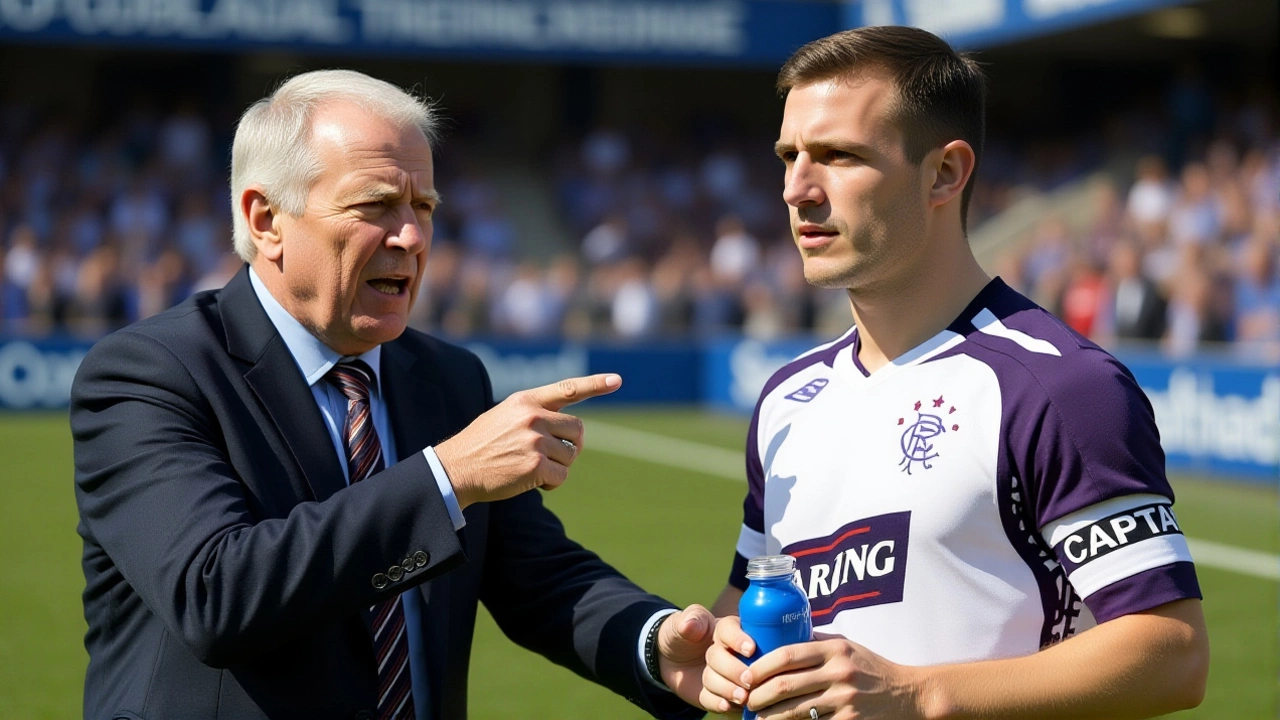When Dick Advocaat stepped onto the touchline at the Boleyn Ground on 21 March 2015, he didn’t just inherit a struggling team—he inherited a crisis. The 67-year-old Dutch manager, fresh off a brief retirement and previously in charge of the Netherlands national team and Zenit Saint Petersburg, was handed the reins of Sunderland Association Football Club after Gustavo Poyet was sacked following a humiliating 1-0 loss to Aston Villa. Advocaat’s mandate was clear: save Sunderland from relegation in the final nine games of the 2014-15 season. His first match? A 1-0 defeat to West Ham United, sealed by Diafra Sakho’s 89th-minute winner. The crowd groaned. The pundits wrote him off. But here’s the thing—Advocaat wasn’t done.
A Humbling Start, Then a Miracle
The loss to West Ham was brutal. Not just because of the scoreline, but because it came in his debut. ESPN called it a "dispiriting start." The Independent noted that winning the Tyne-Wear derby was his immediate priority. And he delivered. Four days later, at the Stadium of Light, Sunderland edged Newcastle 1-0. The tension in the stands? Palpable. The relief? Immediate. That win wasn’t just three points—it was a lifeline.What followed was a quiet, determined turnaround. A 1-1 draw at Stoke. A 3-0 thrashing of Southampton. A 2-0 win at Goodison Park against Everton. Each result felt like a brick laid in a wall of survival. And then came the final act: a 0-0 stalemate at the Emirates Stadium on 20 May 2015. Advocaat, tears in his eyes, embraced his players. Sunderland had survived. They finished 16th—three points clear of the drop. The miracle was real.
Retirement? Then a Reversal
A week after the final whistle, Advocaat announced his retirement. No fanfare. No press conference. Just a quiet statement: "It’s time to step away." But by 4 June 2015, he’d changed his mind. Sunderland, desperate for stability, offered him a one-year contract. The club moved quickly in the summer window, bringing back Jeremain Lens from PSV and re-signing Fabio Borini after his loan spell at Liverpool. It looked like a masterstroke on paper.It wasn’t.
The Collapse
The 2015-16 season unraveled fast. Sunderland lost their opening three Premier League games. A 6-3 League Cup win over Exeter City in August was the only highlight. By October, they were 19th in the table, with just six points from eight matches. The defense was porous. The attack was toothless. The fans grew restless. And then, on 4 October 2015, after a 2-2 draw with West Ham at the Stadium of Light—ironically, the same ground where his first match ended in defeat—Advocaat resigned.His second stint? Four wins, six draws, nine losses. A managerial record that told a story of good intentions, fading energy, and a club too far gone to be saved by one man’s legacy.

Why It Matters
Advocaat’s tenure at Sunderland is a textbook case of how a manager can rescue a team from the brink, only to be overwhelmed by the weight of rebuilding. He didn’t fail because he lacked experience—he had managed at the highest levels. He failed because the club’s infrastructure had decayed. The squad was aging. The recruitment was reactive, not strategic. The fans’ expectations had been shaped by his first, miraculous run—but football doesn’t repeat itself.His first spell was a masterclass in crisis management. His second? A reminder that survival doesn’t equal sustainability. The club would go on to sack three more managers in the next two years. Advocaat, at 68, was the last man who looked like he could hold things together. He did—for a while.
Legacy in the North East
To Sunderland fans, Advocaat is a paradox. He saved them from relegation in 2015, then nearly dragged them down again in 2016. But his first nine games remain sacred. The win over Newcastle. The draw at Arsenal. The tears at the final whistle. Those moments still echo in the stands. He didn’t just manage a team—he became part of their emotional DNA.He retired again in 2016, this time for good. But in the North East, they still remember the Dutchman who showed up with no promises, and somehow, just barely, kept them alive.
Frequently Asked Questions
How did Dick Advocaat turn Sunderland’s season around in 2015?
Advocaat instilled discipline and structure, shifting Sunderland to a more compact 4-4-2 formation. He capitalized on the emotional boost of the Tyne-Wear derby win and built momentum with disciplined away performances, including key victories over Southampton and Everton. His ability to motivate a squad that had lost confidence was critical—Sunderland earned 19 of their 38 season points in his nine games.
Why did Advocaat return to Sunderland after announcing his retirement?
Sunderland’s board, fearing instability after promotion from the Championship, pushed for his return. Advocaat, reportedly moved by the fans’ gratitude and the club’s emotional plea, agreed to a one-year deal. He also saw an opportunity to build on his legacy and bring in familiar players like Jeremain Lens, whom he had coached at PSV.
What went wrong in the 2015-16 season?
The squad lacked depth and pace. Key players like Steven Fletcher and Jermain Defoe were injured or past their prime. Advocaat’s tactical rigidity failed to adapt to modern Premier League pressing. The club’s transfer strategy was reactive—signing aging players instead of investing in youth. By October, Sunderland had the worst defensive record in the league after eight games.
Did Advocaat’s first success guarantee his second tenure would work?
No. His first success was a short-term fix fueled by urgency and morale. The second tenure required long-term planning, which the club wasn’t equipped for. Football isn’t about one manager’s charisma—it’s about systems. Sunderland’s systems had collapsed, and Advocaat, at 68, couldn’t rebuild them alone.
How did Sunderland fans react to his resignation?
Reactions were mixed. Many older fans remembered him as a savior and respected his honesty in stepping down. Younger supporters, frustrated by the team’s decline, saw his resignation as inevitable. A banner at the Stadium of Light read: "Thanks for the miracle, Dick. We just needed more than one." His legacy remains bittersweet—but undeniably part of the club’s story.
What was Advocaat’s overall record at Sunderland?
Across both spells, Advocaat managed 19 Premier League games: 7 wins, 7 draws, and 5 losses. Including cup matches, his total record was 11 wins, 13 draws, and 14 losses. His win percentage of 36% is modest, but his impact was far greater than numbers suggest—he kept Sunderland in the top flight when almost everyone expected them to go down.
